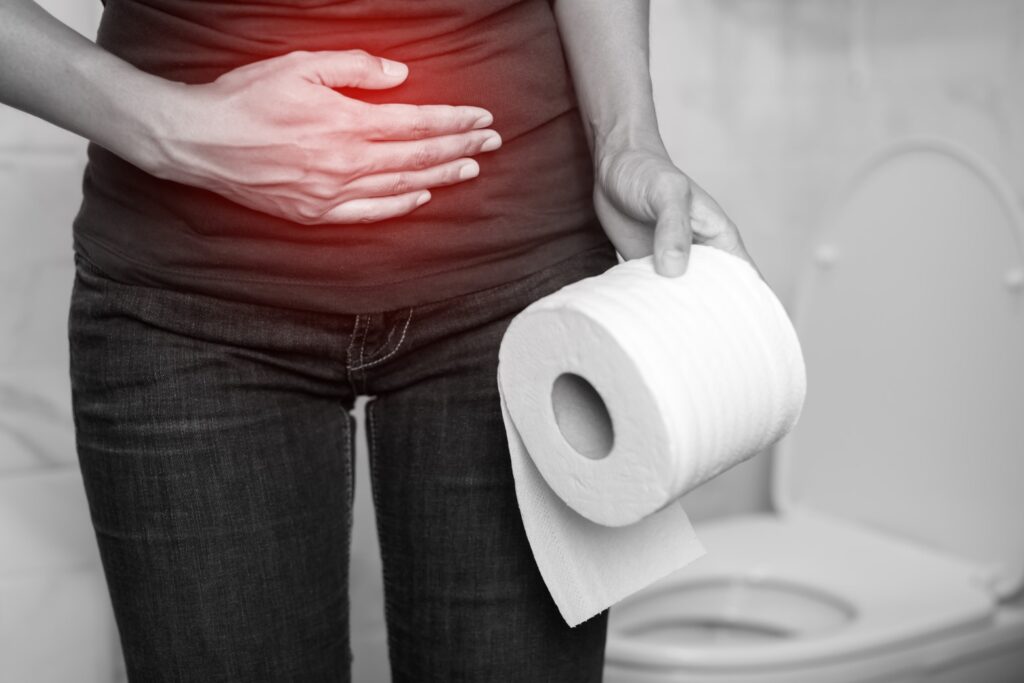Food poisoning is when your body reacts to bad or contaminated food. It happens when you eat something that has germs or toxins in it. These germs can cause many different symptoms. In this blog, we’ll explore the causes, bodily processes, and preventive steps related to food poisoning.
Understanding the Cause of Food Poisoning
Many things can cause food poisoning. Bacteria are one of the main culprits. Common bacteria like Salmonella and E. coli are famous for causing trouble. They can get into food through improper handling or cooking. Often, these bacteria come from raw or undercooked animal products like eggs or chicken.
But it’s not just bacteria that can make your tummy upset. Viruses play a part too. The Norovirus is common and loves to spread in crowded places. It’s notorious for causing outbreaks on cruise ships.
Parasitic infections, though rare, can also lead to foodborne illness. Parasites are tiny creatures that live off other living things. They can contaminate food or water and cause health issues.
Sometimes, the food we eat naturally contains toxins. Foods like toxic mushrooms can be harmful if ingested. Chemical contaminants from pesticides or polluted water can sneak into our meals, causing food poisoning symptoms.
So, always handle food with care to avoid these unwanted guests. Cook food thoroughly and keep it clean.
Pathway of Foodborne Illness in Your Body
When you eat contaminated food, the germs or toxins start their journey. First, they travel down to your stomach. Here they face stomach acid, which often kills harmful invaders.
Some germs, however, survive this acid bath. They make their way to the intestines. Once there, they try to colonize, or settle, inside your gut. These little invaders can directly hurt your body cells by producing toxins.
These toxins irritate the walls of your intestines. This irritation is what leads to food poisoning symptoms like diarrhea. Your body tries to flush them out quickly.
Even if the germs don’t stick around, their toxins can still cause damage. That’s why the effects of food poisoning can be long-lasting, taking a toll on your body.
Body’s Defense Mechanisms Against Foodborne Pathogens
Your body has its own defense against these attackers. One of the first barriers is stomach acid. It’s there to kill many germs in the food before they reach your intestines.
If some invaders get past, the immune system steps in. It identifies and fights these pathogens efficiently. Another defense is your body producing more mucus. This traps and expels the bad guys.
Finally, your body might try to speed things along. That’s why you get diarrhea. It’s a way of flushing out the toxins quickly. These natural responses help protect you, even if it’s uncomfortable at times.
Recognizing Symptoms of Food Poisoning and Their Causes
Knowing the signs and symptoms of food poisoning can help you react quickly. Common symptoms include: – Nausea – Vomiting – Diarrhea
Some people also experience severe cramps and fever. These occur because your body is working hard to fight the invaders.
Dehydration is another risk. Vomiting and diarrhea can make you lose a lot of water. Watch for symptoms like dry mouth and dizziness. Staying hydrated is key when dealing with food poisoning.
Understanding the Lapse of Food Poisoning Illness
The time it takes for food poisoning to hit after eating contaminated food varies. This is known as the incubation period.
Some bugs cause trouble within hours, while others take days. The acute phase, or the worst part, usually lasts a few days. By understanding this timeline, you can better plan your recovery.
Recovery requires rest and care. In food poisoning treatment, proper rest and fluids are essential. Listen to your body as you heal.
Possible Complications from Foodborne Diseases
While most cases resolve on their own, foodborne diseases can lead to complications. Severe dehydration is a major concern. It can lead to electrolyte imbalances.
Rarely, serious issues like reactive arthritis can develop. This happens when your immune system attacks your joints, mistaking them for the invaders.
Hemolytic uremic syndrome is another rare but severe condition. It affects the kidneys and can be life-threatening. Being aware of these risks is important.
Effective Treatment and Recovery for Food Poisoning
When battling food illness, staying hydrated is crucial. Drink water or oral rehydration solutions.
Make sure to rest and adjust your diet. Bland foods like rice and bananas are gentle on the stomach. Avoid greasy or spicy foods.
Some might consider medicine for food poisoning. It’s important to know when to see a doctor. In severe cases, antibiotics may be necessary. But often, rest and hydration are the best medicine.
Preventing Foodborne Illnesses Through Safe Practices
Prevention is better than cure, especially with food poisoning. Here are some tips to keep your food safe: 1. Handle and store food properly. 2. Cook foods to safe temperatures. 3. Maintain hand hygiene by washing regularly. 4. Be aware of high-risk foods like dairy and animal products.
These practices can help avoid many common foodborne infections.
Conclusion and Key Takeaways
Understanding what causes food poisoning and knowing how your body reacts can keep you safer. Take food safety seriously and be mindful of hygiene. Remember to recognize food poisoning symptoms and react promptly by staying hydrated and resting when needed. Proper food poisoning treatment and precautions can prevent further issues.


